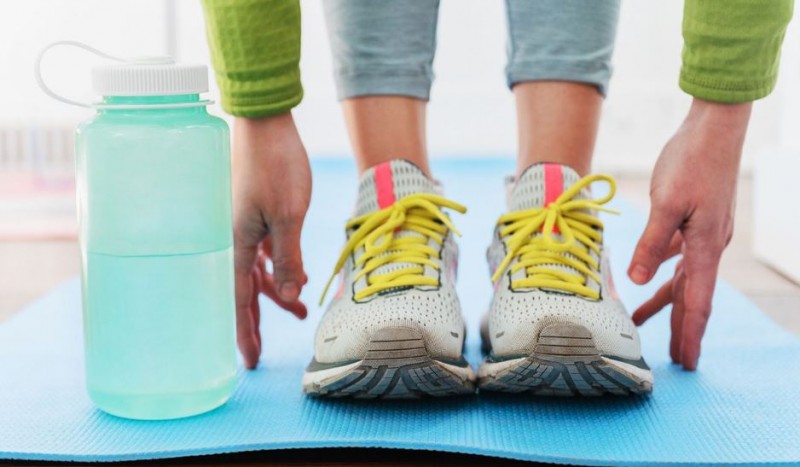
The growing interest in fitness among people is reflective of a broader societal trend towards prioritizing health and well-being. This trend encompasses various practices, ranging from regular exercise routines to dietary modifications and fasting regimens. Against this backdrop, the commencement of Chaitra Navratri holds particular significance for individuals seeking to integrate their fitness goals with their spiritual beliefs. As the nine-day festival unfolds, marked by worship and fasting, individuals embark on a journey of self-discipline and self-reflection, guided by the principles of devotion and reverence.
Chaitra Navratri and the Hindu New Year:
Chaitra Navratri, which begins on April 9th and concludes on April 17th, heralds the advent of the Hindu New Year, signifying renewal, rejuvenation, and spiritual growth. During this auspicious period, devotees pay homage to Goddess Durga, invoking her blessings and seeking her divine grace. The rituals of fasting and prayer observed during Navratri serve as a testament to the enduring traditions and cultural heritage of Hinduism, fostering a sense of community and shared identity among believers.
The Spiritual Significance of Fasting:
Fasting holds a central place in the religious observances of Chaitra Navratri, symbolizing purification, penance, and devotion. By abstaining from food and other worldly pleasures, individuals seek to transcend the limitations of the physical realm and attain spiritual enlightenment. Fasting is not merely a ritualistic practice but a profound expression of faith and commitment, serving as a reminder of the impermanence of material existence and the eternal nature of the soul.
The Benefits of Fasting for the Body:
Beyond its spiritual dimensions, fasting offers a myriad of benefits for the body, promoting detoxification, metabolic efficiency, and overall well-being. During fasting, the body undergoes a process of autophagy, wherein damaged cells are broken down and recycled, leading to cellular rejuvenation and enhanced resilience. Additionally, fasting can regulate blood sugar levels, improve insulin sensitivity, and promote fat loss, thereby supporting weight management and metabolic health.
The Intersection of Faith and Fitness:
For many individuals, the question arises of how to reconcile their commitment to fitness with the practice of fasting. While the primary motivation for fasting may be spiritual, it is essential to recognize the potential impact on one's physical health and fitness regimen. By integrating principles of faith and fitness, individuals can forge a harmonious balance between body, mind, and spirit, fostering holistic well-being and self-empowerment.
Navigating Exercise During Fasting:
The decision to exercise during fasting periods is influenced by several factors, including individual health status, dietary habits, and personal preferences. While some individuals may find that exercise enhances their fasting experience by promoting mental clarity, energy levels, and overall vitality, others may prefer to focus on rest and relaxation during this time. Ultimately, the key lies in listening to one's body and honoring its needs, whether it be for movement or stillness.
Expert Insights on Exercising During Fasting:
Fitness experts emphasize the importance of considering one's calorie intake and energy expenditure when deciding whether to exercise during fasting. If calorie intake is sufficient to support physical activity, exercise can complement fasting by promoting calorie burn, muscle preservation, and cardiovascular health. However, individuals with limited calorie intake may need to adjust their exercise routine accordingly, opting for lighter activities that do not strain the body excessively.
Managing Energy Levels and Nutrient Intake:
Maintaining adequate energy levels and nutrient intake is essential for sustaining exercise performance and overall well-being during fasting. While fasting, individuals should prioritize hydration, consuming plenty of water and electrolyte-rich fluids to prevent dehydration and support cellular function. Additionally, incorporating nutrient-dense foods such as fruits, vegetables, and lean proteins can provide essential vitamins, minerals, and antioxidants to support immune function and muscle recovery.
Balancing Intensity and Rest:
Finding the right balance between exercise intensity and rest is crucial during fasting periods. While moderate-intensity exercise can stimulate metabolism and promote fat loss, overly strenuous workouts can lead to fatigue, muscle breakdown, and increased risk of injury. Therefore, individuals should tailor their exercise routine to match their energy levels and physical capabilities, allowing for periods of rest and recovery as needed.
Mindful Eating and Hydration:
Practicing mindful eating and hydration is essential for supporting overall health and well-being during fasting. Individuals should pay attention to hunger cues and choose nutrient-dense foods that provide sustained energy and satiety. Additionally, staying hydrated by drinking water, herbal teas, and electrolyte-rich beverages can prevent dehydration and promote digestive health. By nourishing the body with wholesome foods and fluids, individuals can optimize their fasting experience and enhance their physical resilience.
Seeking Professional Guidance:
For individuals with specific health concerns or medical conditions, seeking professional guidance from healthcare providers, nutritionists, or fitness professionals is recommended. These experts can offer personalized advice, address individual needs, and ensure that exercise and fasting are conducted safely and effectively. By collaborating with knowledgeable professionals, individuals can make informed decisions regarding their health and well-being, maximizing the benefits of fasting and fitness while minimizing potential risks.
In conclusion, the integration of fitness and fasting offers a unique opportunity for individuals to nurture their physical, mental, and spiritual well-being. By honoring the principles of faith, discipline, and self-awareness, individuals can navigate fasting periods with grace and resilience, harnessing the transformative power of exercise and spirituality to cultivate a holistic approach to health and vitality. As Chaitra Navratri unfolds, may this auspicious time be a catalyst for personal growth, renewal, and enlightenment, guiding us towards greater harmony, balance, and fulfillment in body, mind, and spirit.
Stay Hydrated: Top Foods to Beat the Heatwave of 2024